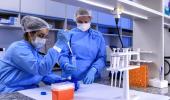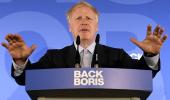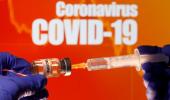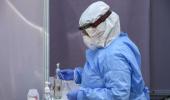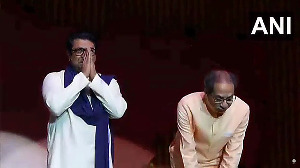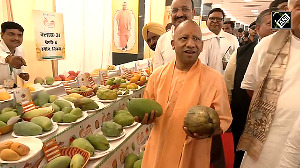Medical experts have warned that the volume of vaccine available to fight the coronavirus or SARS-CoV-2 in coming years is expected to fall far short of global demand, despite an unprecedented effort to manufacture billions of doses.
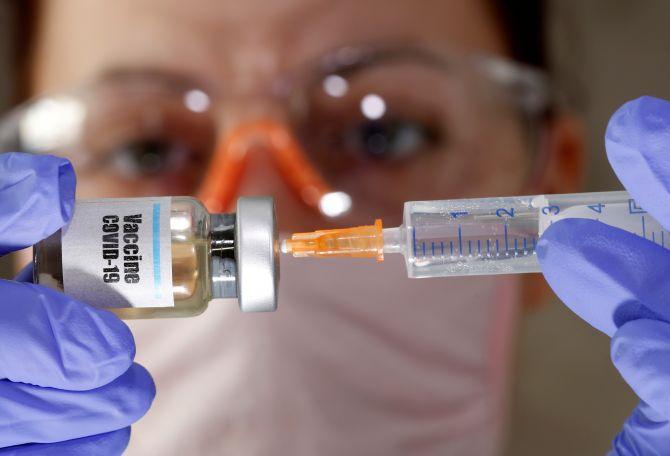
About 70 per cent of the world's population -- or 5.6 billion people -- will probably need to be inoculated to begin to establish herd immunity and slow its spread, The Washington Post reported citing scientific research on Monday.
The scenario public health experts fear most is a worldwide fight in which manufacturers will sell only to the highest bidders, rich countries trying to buy up the supplies, and nations where manufacturers have located hoard vaccines for their own citizens.
"The model of countries thinking only of themselves is not going to work. Even if you're living somewhere that's somehow perfectly without any infections, your best efforts to fight the virus are going to fail unless you shut off all your borders and trade," said Seth Berkley, CEO of Gavi, a public-private partnership that helps provide vaccines to developing countries.
"This is a global problem that requires a global solution," he added.
International health advocates want to avoid a repeat of 2009, when wealthy countries -- including the United States, led by former US President Barack Obama -- were at the head of the line for H1N1 swine-flu vaccine, leaving underdeveloped countries with little supply until after the pandemic subsided.
Such an approach will be sorely tested by current US President Trump and other world leaders with nationalistic impulses and their own anxious populations that want to reduce the deadly threat and bring their economies back to life.
In the United States, the federal government agency in charge of emergency vaccine development indicated it is prioritising domestic concerns -- an "America First" mentality that has shaped much of the Trump administration's pandemic response.
"Right now, we're focused on the whole-of-America approach required to expedite the availability of vaccines," Gary Disbrow, acting director of the Biomedical Advanced Research and Development Authority, said in an emailed response to the Post.
BARDA, tasked with protecting Americans from biological threats, is channeling nearly half a billion dollars in emergency funds to Johnson & Johnson to develop a vaccine. It also is providing hundreds of millions of dollars in financial support for vaccine efforts by Sanofi, the large French drug company, and Moderna, a biotech company in Massachusetts teaming with a Swiss company for vaccine manufacturing.
The global grab for protective equipment and ventilators that left poorer countries empty-handed suggests the competition over vaccines could be at least as fierce. Dozens of companies large and small are rushing to develop vaccines using different technologies and approaches.
The race for a vaccine is full of risks because no one knows which projects will succeed. That forces companies to scale up to produce millions of doses of vaccine that might end up being worthless.
It should also be noted that the United States might not be well-positioned if the best vaccines end up coming from other countries or international collaborations.
This race could make large drug companies enter into vaccine contracts again as they face pressure to recoup their investments, the newspaper said further.
"Rich countries monopolised the vaccine, poor countries were left behind," Gavin Yamey, director of the Center for Policy Impact in Global Health at Duke University, said in a university podcast.
"They got the vaccine later, and they got less of it." Allowing a repeat scenario in the battle against the coronavirus would be a devastating mistake, he said.
"Unless we make this vaccine globally available," he said, "we are not going to be able to end the pandemic, because ... an outbreak anywhere is an outbreak everywhere."
